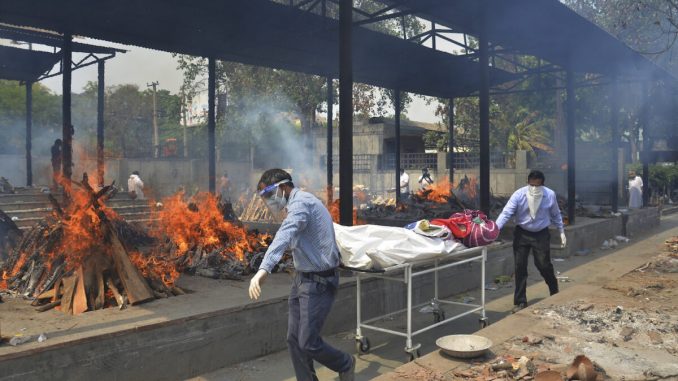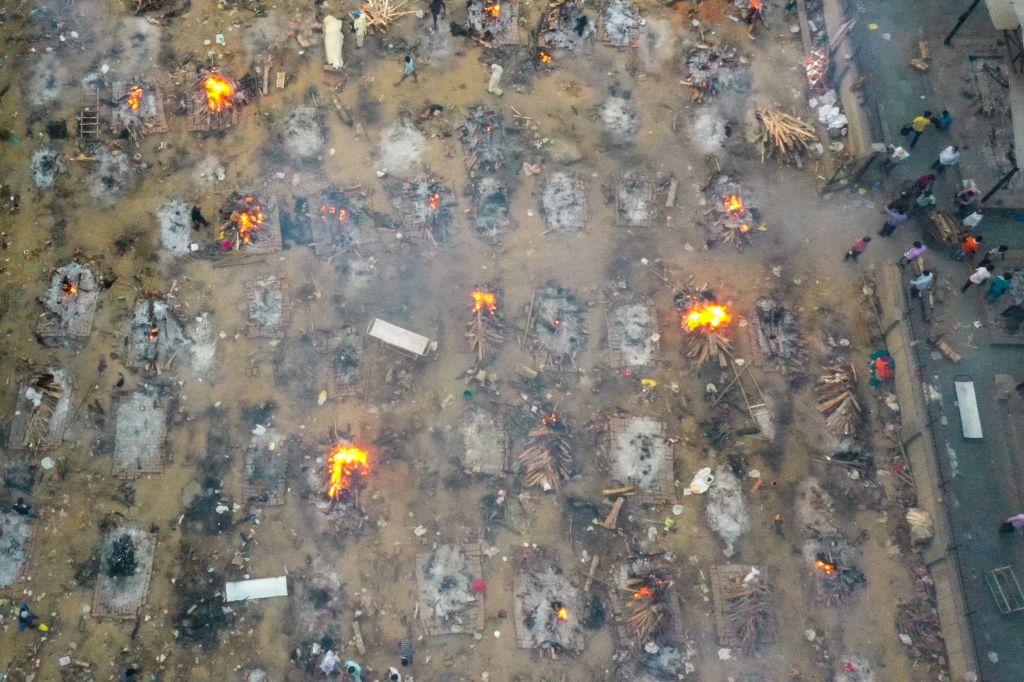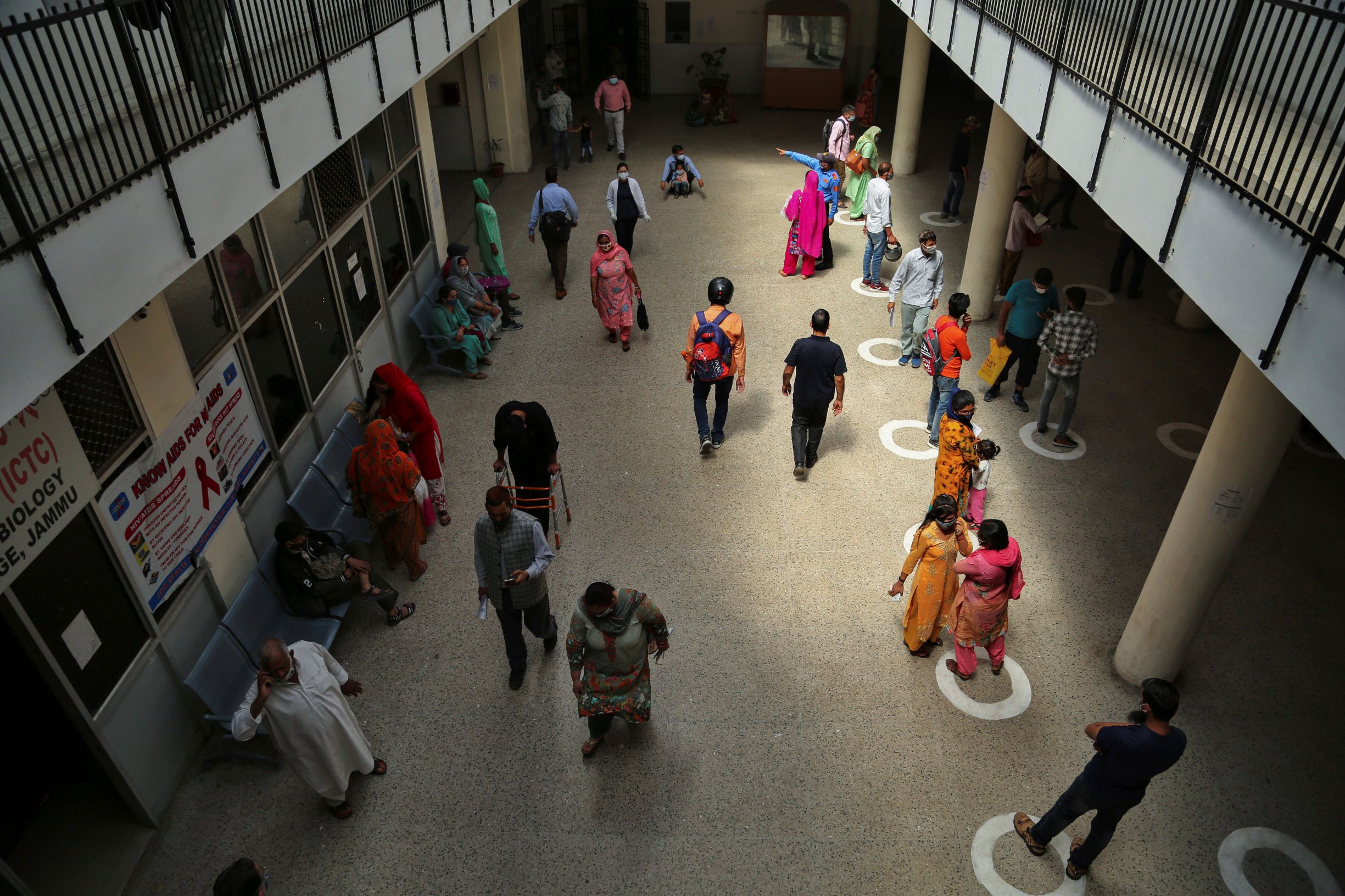
Commentary
It’s been two weeks since I started reporting on the current COVID surge in India. It has been heartbreaking and I have often teared up while writing. It has also been inspiring witnessing stories of compassion, courage, and the triumph of the unshakable human spirit over adversity.
I was on a reporting trip to the south of India in mid-April, a few days before the surge started. I returned to New Delhi in time for the lockdown.
There was much to write and COVID reporting wasn’t on my priority list. But when I saw those drone images of pyre-crowded cremation grounds I decided to go out. Such images visible through drone cameras might literally be in one’s worst nightmares of the apocalypse. Probably that’s why they shocked our media-hooked selves.
India is a big, puzzling nation—it can never stop to amaze you, quiz you, surprise you. The beauty of this nation is that you can’t look at it, its issues and problems from any angle of homogeneity. It’s every object and every subject has layers of meaning and any attempt to hurriedly decipher a viewpoint can only fall short of its reality.
I wasn’t prepared for what I saw on the day I went out, a day after when the country first broke the world record of the largest number of new cases in a single-day. It kept on doing that again and again for a whole week.
I was out from morning to dusk visiting hospitals, mortuaries, cremation grounds, and food distribution centers for the homeless and poor. In India, cremations are family and community affairs. Irrespective of religion, we gather together to mourn, to offer condolences, and to support the grieving family.
Hindu cremations—the ones photographed from a drone—are also about rituals in India. The way a body is carried to the cremation ground, the way the pyre is lit, and who lights is—all are pre-determined. The lockdown has physically cut us off from each other. It has made it difficult to follow our rituals.

Though we are witnessing an exponential increase in deaths around us, we aren’t able to grieve as our culture requires us to do.
The day I went out I had to overcome my cultural notions of walking through rows of burning pyres. It’s shocking to realize one is being warmed by a burning body. It’s startling to walk by a pyre when the cranium bursts off. It feels numb to see people everywhere around in dignified silence walking amidst a hundred pyres.
I couldn’t muster the courage to click pictures in such a mourning atmosphere, and I was also politely asked not to. So I presume that could be why some photographers sent drone cameras to capture the view.
But from the outside I could climb a wall to peep into the crematorium and just under my nose, I saw a middle-aged man lighting the pyre of his wife. By the kind of rituals that were being performed, I could make out she was his wife.
It felt bad to pry into someone’s privacy—to watch their last moments together. I got carried away by the story unfolding in front of me while balancing myself holding on to a tree branch. They still seemed to be silently communicating. The man seemed very dignified. I teared up from afar, but he seemed to be playing his part so dutifully and with much love.
Last year during the lockdown I was in New York and I called up 25 crematoriums and managed to talk with five, with two in detail. It was mandatory in New York to cremate all COVID bodies in electric crematoriums and those crematorium facilities were within closed walls, unlike the open ones in India.
Those crematoriums didn’t allow families to perform rituals. Cremations happened by the pressing of a button. In India I saw people performing elaborate rituals, and thus the distress is more visible.

I have also come across those in quarantine seeking help for assistance for family members who died due to COVID in hospitals. Those profiles are piling up in my inbox!
In February I had visited Varanasi and covered a story on the world’s most ancient crematoriums where Indians throng from around the country to cremate their loved ones because they believe dying in the ancient city of Kashi can liberate the soul. So in a way when people die or get cremated in Kashi, there is some reassurance of something good happening in the afterlife.
However, what happened in Delhi in the last two weeks is beyond comprehension. It’s beyond our cultural comprehension of death. We just don’t know what’s happening! We are culturally in a state of shock, and we don’t yet recognize it because it’s yet not over.
Like everything of India’s puzzling self, this time has also been very invigorating, because everything is out there in the open for the rest of the world to see. That’s how it should be in a democracy, isn’t it?
India’s hopes these days are however the various emergency responders who have volunteered to link patients with beds, find oxygen cylinders, supply COVID medicines, arrange consultations with doctors, provide rations, and stand by those in distress in every way possible.
They are India’s future. They triumph over the narrative of India on the pyre, over every political dividing line, and over conspiracy theories that have only attempted to create panic and amplify our challenges.
India today needs the world’s support, patience, and love more than any judgment or analysis. By understanding what’s happening with India these days, the world will also understand what’s happening with it.
In our integrated existence, any occurrence is a window to a greater unfolding.
Views expressed in this article are the opinions of the author and do not necessarily reflect the views of The Epoch Times.





Be the first to comment